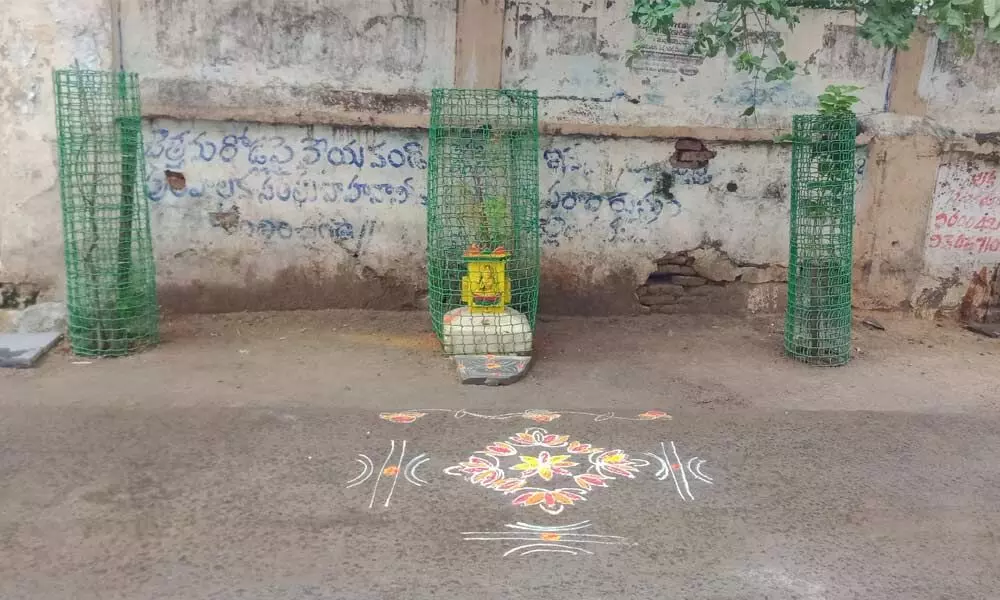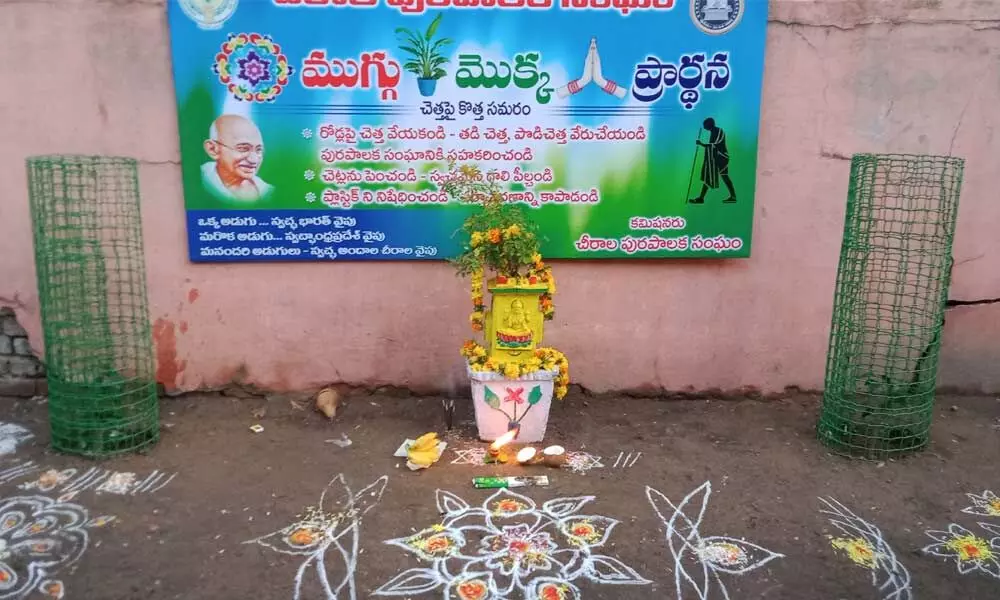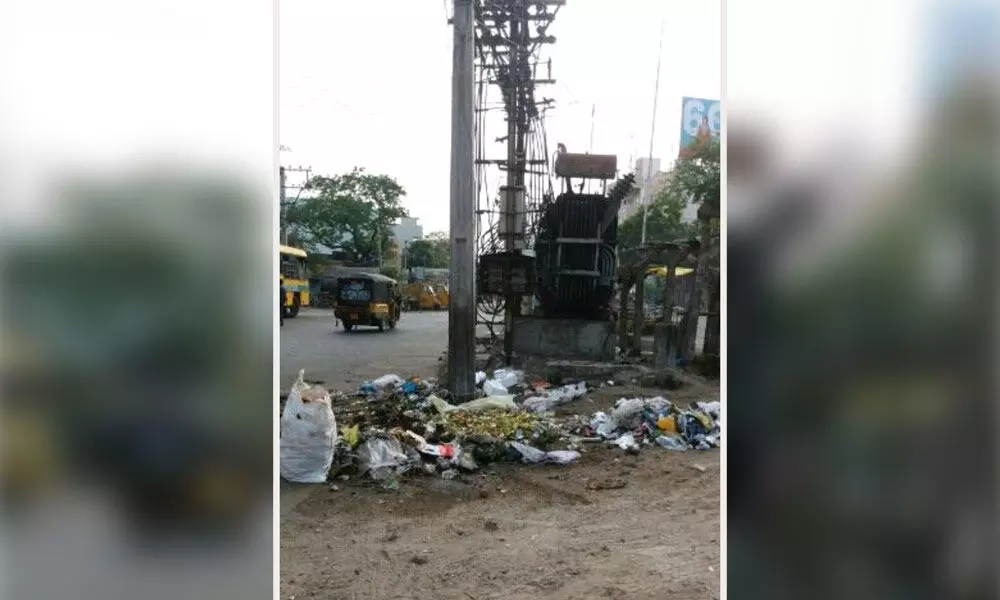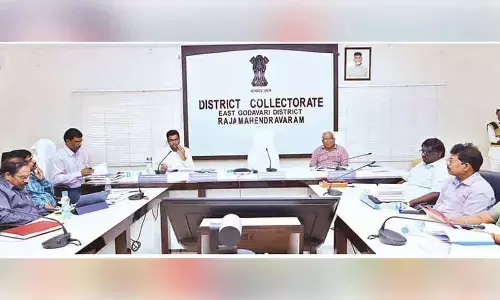Religious symbols and sacred texts transform Chirala into a clean city

Religious symbols and sacred texts transform Chirala into a clean city
Common sense is not common, so is civic sense
Common sense is not common, so is civic sense. When the littering and garbage dumping on roads by the denizens is uncontrollable, the Chirala Municipality officials sought rescue by the heavens. They requested the gods to help them in inculcating the habit of keeping surroundings clean in the majority of the public and the efforts worked well.
Chirala is a small town with a population of nearly one lakh in the Coastal area of the state and popularly known as Mini Mumbai for its production of various designs in the handloom industry and always bustling with people coming and leaving the town from various places. The town is also known for its poor sanitation, open urination, overflowing drainages, roaming of stray animals etc, but the situation is drastically improved with the commitment of the urban local body.
The Swacch Bharat Mission taken up by the union government had boosted the morale of the local sanitation officers and workers. The sanitation inspector Shaik Basheer and his team came with the idea of installing religious symbols and sacred texts at nearly 300 black spots where the public are littering, urinating, dumping waste and overflowing drainages.
They removed the garbage, cleaned the places and sprayed disinfectants. They put colourful rangolis and requested the local leaders to see those places maintained clean and hygienic. As the expenditure is increasing and the response from the public is nominal, they started installing the Tulasi Kotas in the places, where Hindu people are residing, planted trees in pots with Christian and Islamic symbols in the areas populated by the communities. They provided the tree guards to the plants, also set up banners with verses from the Gita, Bible and Quran. Though the public opposed the move by the local body at first, they adapted to it in the meantime and started to understand the beauty of cleanliness.
The Chirala municipality was considered for Swachh Sarvekshan Awards- 2018 and achieved 11th rank of nearly 190 urban local bodies in the south zone. Due to the transfers of the sanitation staff and municipal officials, along with the general election campaigns, the Swachh Chirala lost its commitment a little, but the Swachh Sarvekshan rank dropped to 28 in 2019.
The results of the Swachh Sarvekshan 2019 shocked many of the sanitation employees and they put all their efforts again in 2020. With the cooperation of the municipal officers and public, the Chirala town bettered its position and achieved 2nd rank in Swachh Sarvekshan 2020. Also, the Chirala municipality received the 'South Zone - Best Self-Sustainable City' award from the union government for segregating and recycling the waste and using the income on sanitation without depending on the funds from the urban local body.
The sanitary inspector Basheer said that they had spent more than Rs 1 lakh for the Tulasi Kotas, plants, pots and rangolis. He said that his mother has spent nearly half of the amount while the other donors contributed the remaining. He said that every person wants the places of gods to be clean, and the sentiment helped the town to get a makeover from the stinky town to the Swachh Chirala.
He said that they are aiming for Rank 1 in the next Swacch Sarvekshan. The Chirala municipal commissioner Ch Malleswara Rao appreciated the efforts of Basheer and other sanitary officers. He said that the use of religious symbols and sacred texts has shown a great impact on the public as sentiment and it helped them in developing civic sense. He said that now they are going to remove all garbage bins in the town, collect segregated waste from the houses and transfer it to the yard for composting and segregating waste. He said that the waste management unit is also earning a decent income, on the 53 tons of garbage being collected daily, which can also be used in the awareness programs on sanitation.











